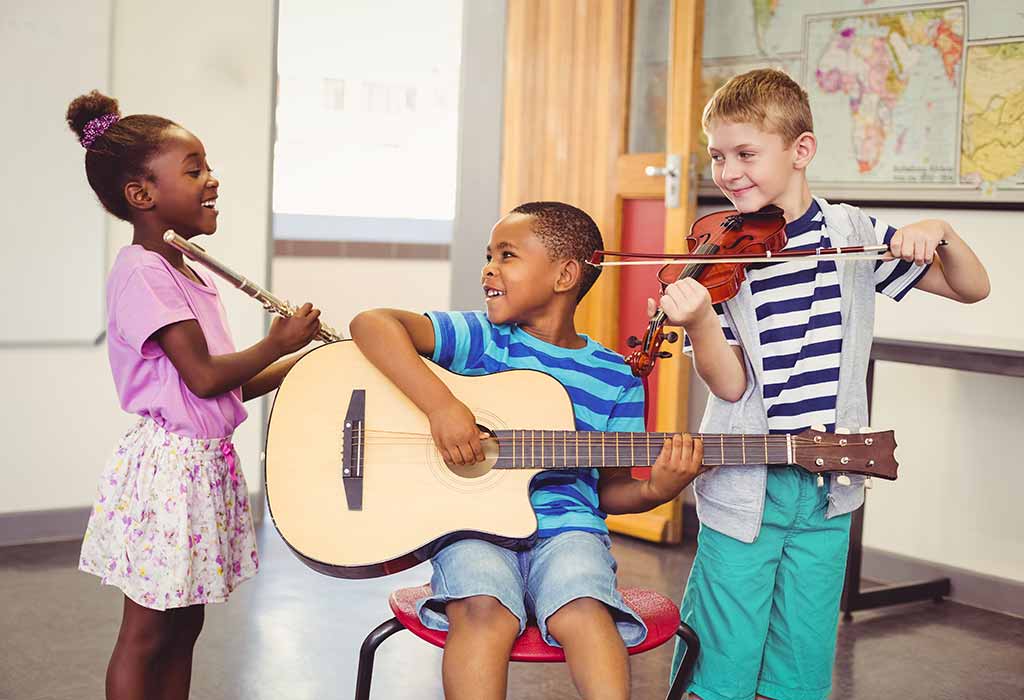
Music Education
The Connection Between Music and Childhood Development
Music education offers immense benefits for children’s development. Research shows that children who receive musical training often excel in cognitive development, social skills, and emotional regulation. These children perform better academically, particularly in math and language arts. Children develop foundational skills that benefit them across all learning and personal growth areas by engaging in music education. Hence, integrating music programs into school curricula can significantly boost student performance. For those interested in contributing, avenues for music donation provide a valuable opportunity to support these essential programs. Contributing to these programs helps ensure that music education remains accessible to all students, regardless of socioeconomic status.
Enhancing Cognitive Skills Through Music
Learning to read music or play an instrument involves using different brain parts. This multi-faceted stimulation aids in the development of critical thinking and problem-solving skills. Studies have found that children who engage in musical activities exhibit enhanced memory, attention, and spatial-temporal skills. Such improvements are attributed to the complex processes of reading music, coordinating hand movements, and interpreting auditory signals. This brain boost equates to better academic performance and heightened creativity. The cognitive benefits of music education extend well beyond the music classroom, making it a vital component of holistic education.
Music and Memory
Music training has been associated with better memory, especially verbal memory. For example, children who study music are often better at recalling words than their non-musical peers. This enhancement is due to the repetitive nature of practicing and memorizing music, which strengthens neural connections. The skills developed through music education can also improve academic performance in other areas, such as language arts and mathematics, by enhancing the brain’s ability to process and retain information.
Reducing Stress and Enhancing Well-Being
In addition to cognitive benefits, music education can also improve emotional well-being. Music has been shown to reduce stress and anxiety, making it a therapeutic tool for children. Participation in music activities can provide an emotional outlet, allowing children to express themselves in healthy ways. This expression is vital for emotional development as children learn to manage their feelings through creative means. Participation in music can foster a sense of accomplishment and bolster self-esteem, contributing to a more positive outlook on life and school.
Music as Therapy
Numerous studies back music’s therapeutic effects. Activities like listening to calm music or playing an instrument can significantly reduce cortisol levels, the body’s primary stress hormone. This stress reduction allows children to focus better and engage more fully in their educational pursuits. Furthermore, music therapy provides a nonverbal medium for expression and education to benefit kids with specific needs. The emotional benefits of music education are profound, providing children with tools to navigate life’s challenges more effectively.
Improving Social Skills and Teamwork
Participation in music groups, such as bands and choirs, promotes teamwork and social interaction. These collective activities teach children the value of cooperation, patience, and discipline. They learn to listen, share, and work together toward a common goal. These are critical social skills that will serve them well throughout their lives. The social interactions fostered through music education help build a sense of community and belonging among students, enhancing their overall school experience.
Teamwork in Practice
Music ensembles require each member to perform their part while being mindful of the collective harmony. This teaches children important social cues and collaborative skills. The experience of working in a team can also boost their confidence in social settings, making it easier for them to form meaningful relationships. As children become more adept at working with others, they develop a sense of empathy and understanding, which are crucial for navigating social complexities both in and out of school.
Funding Music Programs: A Necessary Step
Given the myriad benefits of music education, ensuring its presence in schools becomes imperative. Yet, many music programs face financial challenges, necessitating external support. Providing funding for music education is crucial for nurturing well-rounded students who can contribute positively to society. Schools often rely on external donations to sustain their music programs, highlighting the importance of community involvement in supporting education. By funding music programs, we can create an equitable educational environment where all students have access to the benefits of music education.
Ways to Support Music Education
There are several ways that people can support the advancement of music education. From donating instruments to volunteering time and resources, every bit helps. Numerous organizations offer avenues for contributing towards music programs, ensuring that all children can benefit from music education. Supporting these programs enriches individual students’ lives and strengthens the fabric of the broader community.
Donating Instruments
One of the easiest ways to support music education is by donating instruments. Many students need access to musical instruments due to financial constraints. By providing instruments, donors ensure that children from all backgrounds can participate in music programs. Instrument donations can significantly impact music programs by allowing more students to engage in musical activities, regardless of their financial situation. This accessibility is crucial for fostering an inclusive and diverse music education environment.
Conclusion
Music education is an extracurricular activity and a vital component of holistic child development. We can foster a generation of more capable, happy, and socially adept individuals by supporting school music programs. Music advocacy is essential for creating equitable education systems. Thus, investing in music education is investing in our future. Supporting music education through initiatives such as music donation ensures that all students can experience the beneficial impacts of music education, leading to a more harmonious and enriched society.






